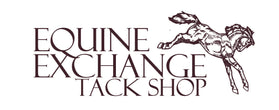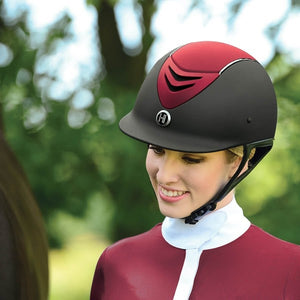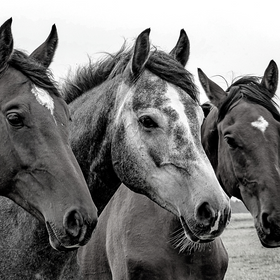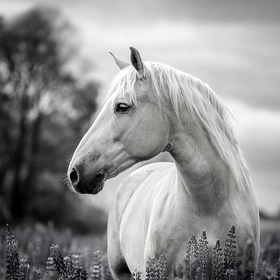
General Feeding Guidelines for Horses With Different Needs
Like humans, horses have different nutritional needs depending on their life stage and daily life. While it would save horse owners a lot of money and time to feed every horse the same thing, this doesn’t work for most horses. All equine diets should be based on forage (grass or hay), and concentrates (grain) can be added to compensate for any nutrients or calories missing from the forage. Many low-maintenance horses are perfectly happy and healthy on a forage-only diet, but this same diet would not be enough for a growing horse or one in heavy work.
Not All Forage Is Created Equal
Horses are natural grazers, and their digestive tracts are designed to eat and digest forage. Forage should always be the basis of any equine diet. With that being the case, it is essential to know that not all forages are the same. Pasture grasses and legumes vary significantly in protein levels, vitamins, and mineral content.
Forage is broken into two classifications: legumes (alfalfa and clover) and grasses (timothy, orchardgrass, bermudagrass, etc.). In hay, legumes have a higher protein level than many types of grass. In general, a mixture of legumes and grasses is an excellent way to feed forage.
In some areas of the country, forage choices are limited, and you may need to feed a less than ideal forage. If this is the case, be sure to ask for the nutritional analysis for the hay to select the proper concentrate to supplement (if needed). Some types of forage are deficient in specific nutrients. The nutritional analysis will tell you if you need to supplement a particular nutrient for your horse.
Feeding Low Maintenance Horses
Adult horses with no weight loss or gain issues and not under heavy work are generally considered low-maintenance horses. These horses do not have high energy demands and have basic nutritional needs. Most low-maintenance horses will maintain a healthy weight on pasture or hay and do not need additional concentrates.
Feeding Growing Horses
Young horses grow rapidly. Most breeds will achieve 90% of their adult weight within the first year. Your foal will need sufficient nutrients, including protein, minerals, and vitamins, to support this growth. While a foal is exclusively nursing, the mare supplies these nutrients, assuming she is in good health. Foals will start to explore grass, hay, and grain around three months of age. Creep feeding with mare and foal grain is an excellent way to help provide the foal with extra nutrients.
Feeding a Sport Horse
Horses in consistent work have more demands put on their body, very similar to a professional athlete. These horses will need additional energy through fiber, starches, fats, and sugars to maintain their weight during training. Most sport horses require a combination of forage and concentrates for optimal performance and maintaining their overall health.
There are many grains on the market specifically designed to meet the nutritional needs of performance horses. Make sure to research these grains and the manufacturer to ensure the feed is fortified with the right vitamins and minerals.
Feeding Older Horses
As your horse ages, you will likely notice they slow down, appear stiffer, and may have trouble eating. Dental issues and digestive tract deterioration are commonly seen in senior horses. The digestive tract slowly loses the ability to absorb nutrients as a horse gets older. Dental problems are also very common in older horses. When you combine these two issues, you’ll often see weight loss in senior horses.
Finding feed that is easy to chew and dense in nutrients is the key for senior horses. Senior horses tend to do better on pasture than hay because fresh grass is easier to chew and digest. Alternative options such as soaked beet pulp are also highly digestible and easy to chew. If you need to provide additional nutrients with a concentrate, look for a grain designed for senior horses. These grains are nutrient-dense and easy to chew and digest.
Always consult your veterinarian if you have concerns about your horse’s diet, weight loss, or weight gain.





